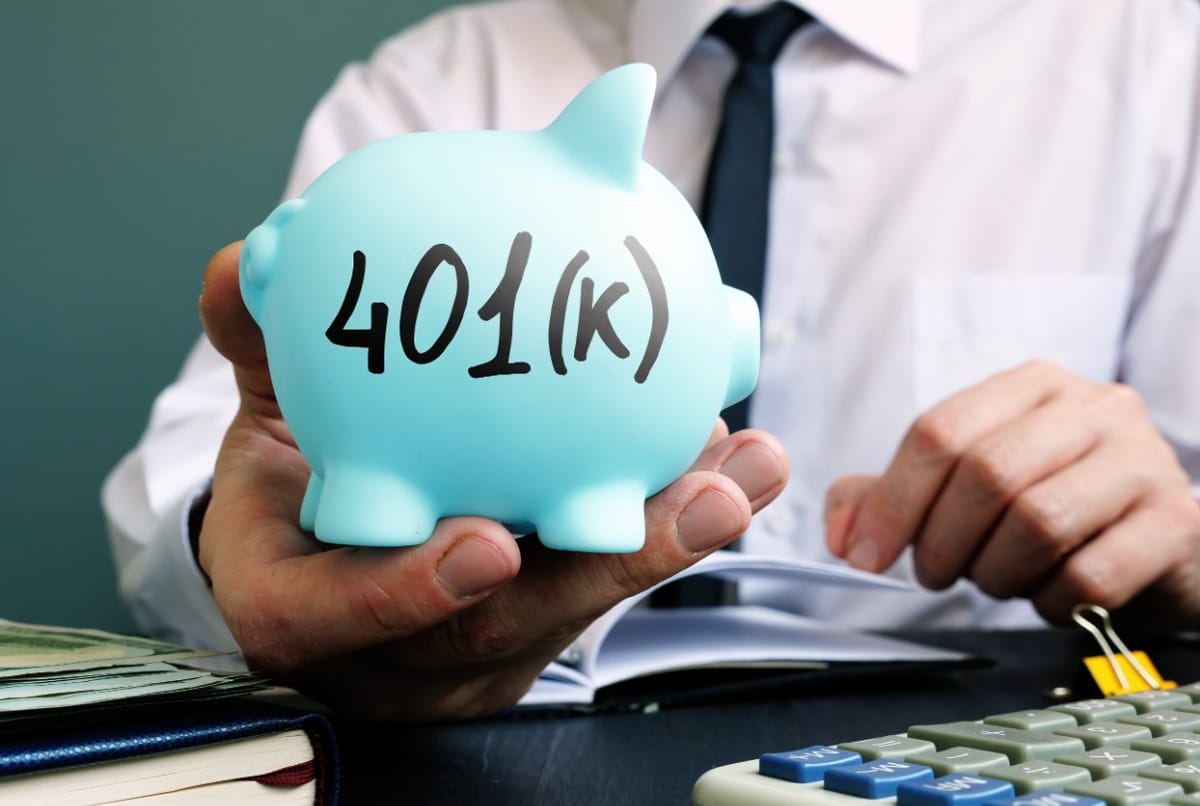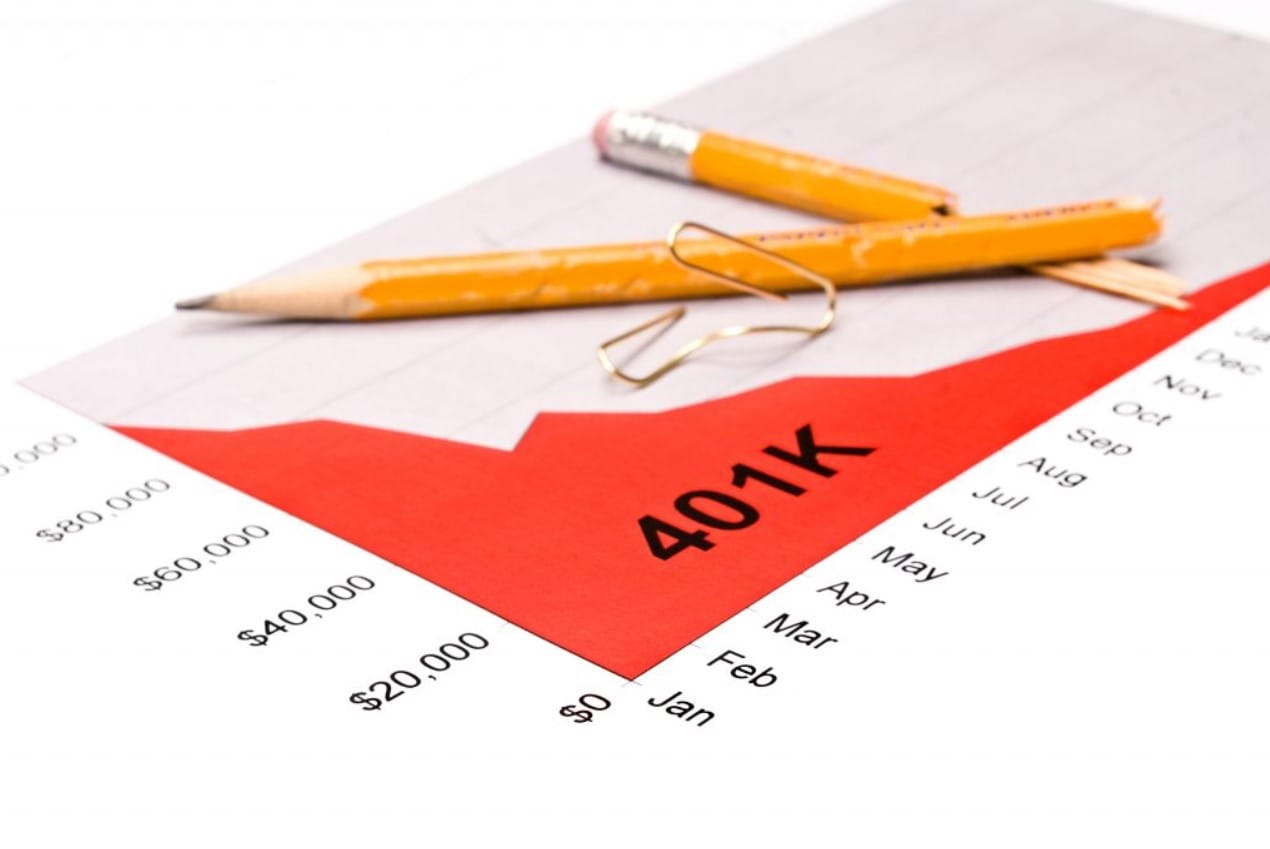What If My 401(k) Isn't Performing?

A 401(k) is one of the most powerful retirement savings tools, but what happens if it’s not performing as expected? Many investors worry about slow growth, high fees, or underperforming funds that can impact their long-term financial security.
If your 401(k) isn’t meeting expectations, don’t panic. Instead, take a proactive approach by assessing your portfolio, rebalancing investments, and maximizing employer contributions. This guide will walk you through practical steps to optimize your 401(k) and set yourself up for a secure retirement.
🔍 Understanding 401(k) Performance

📈 What Defines a "Good" 401(k) Performance?
A well-performing 401(k) should:
✔ Grow steadily over time, ideally aligning with stock market benchmarks (e.g., S&P 500)
✔ Benefit from employer contributions and compounding growth
✔ Maintain a balance between risk and stability through diversification
⚠ Common Reasons for Underperformance
- High Fees – Expense ratios and administrative costs can eat into your returns.
- Poor Asset Allocation – Too much risk or too much conservatism can hurt long-term growth.
- Market Volatility – Economic downturns may temporarily reduce portfolio value.
- Lack of Diversification – Investing too heavily in one sector increases risk.
- Insufficient Contributions – Not maximizing your savings can hinder future growth.
📊 Assessing Your 401(k) Plan

🔍 Reviewing Investment Options
- Check available fund choices within your plan.
- Assess risk levels and investment strategies.
- Consider adjusting allocations based on your age and retirement goals.
📅 Evaluating Historical Returns
- Compare fund performance against benchmarks like the S&P 500 or bond indices.
- Identify consistently underperforming funds and consider switching to better options.
💰 Understanding Fees and Their Impact
| Type of Fee | Impact |
|---|---|
| Expense Ratios | Ongoing costs for managing mutual funds. |
| Administrative Fees | Charges for plan management and maintenance. |
| Transaction Fees | Costs incurred when buying or selling investments. |
💡 Tip: Look for low-cost index funds with expense ratios under 0.50% to minimize costs.
🛠 Strategies to Improve 401(k) Performance
📌 Diversification & Asset Allocation
Why It Matters: A well-diversified portfolio balances growth potential and risk reduction.
⚖ Balancing Risk and Reward
- Younger investors (20s–40s): Higher allocation in stocks for aggressive growth.
- Mid-career investors (40s–50s): Balanced mix of stocks and bonds.
- Near-retirees (50s–60s): Conservative allocation with more bonds and cash.
💡 How to Diversify Effectively
- Stocks: Large-cap, mid-cap, small-cap, and international stocks.
- Bonds: Government and corporate bonds for stability.
- Alternative Investments: Real estate, REITs, and commodities for added protection.
📌 Rebalancing Your 401(k) Portfolio
🔄 What is Rebalancing?
Rebalancing means adjusting your portfolio back to your target allocation. For example, if your stock allocation grows too large due to market gains, selling some stocks and reallocating funds can help maintain your preferred balance.
📅 When Should You Rebalance?
✅ Annually or semi-annually to maintain your preferred asset mix.
✅ After major market shifts to protect against excessive losses.
✅ During life changes (e.g., job switch, marriage, or nearing retirement).
🔥 Benefits of Regular Rebalancing
✔ Prevents overexposure to risky assets.
✔ Helps lock in gains from high-performing investments.
✔ Maintains a long-term investment strategy without emotional decision-making.
💰 Maximizing Contributions for Higher Returns
🏆 Taking Full Advantage of Employer Matching
Many companies match a percentage of employee contributions. This is essentially free money, so take full advantage of it!
💡 Example: If your employer matches 100% of your contributions up to 5% of your salary, not contributing at least 5% means leaving free money on the table.
📈 Increasing Personal Contributions
- Allocate raises and bonuses toward your 401(k).
- Cut unnecessary expenses and boost savings.
- Take advantage of IRS contribution limits. (In 2024, the limit is $23,000, plus a $7,500 catch-up contribution for those over 50.)
🔄 Alternatives to Traditional 401(k) Investments
📌 Exploring Roth 401(k) Options
- Traditional 401(k): Contributions are tax-deferred, but withdrawals are taxed.
- Roth 401(k): Contributions are after-tax, but withdrawals are tax-free in retirement.
💡 Which is Best for You?
- Choose a Roth 401(k) if you expect your tax rate to be higher in retirement.
- Stick with a Traditional 401(k) if you expect a lower tax rate after retirement.
📈 Investing Beyond Your 401(k)
- IRA (Traditional or Roth) – Additional tax-advantaged retirement savings.
- Brokerage Accounts – Offers flexibility with no contribution limits.
- Real Estate or REITs – Helps diversify beyond stocks and bonds.
📊 Monitoring and Adjusting Your 401(k) Strategy
📅 Regular Plan Reviews
How often should you check your 401(k)?
✔ Quarterly – Quick performance check.
✔ Annually – Review investment allocations and fees.
✔ Major life events – Job changes, marriage, or nearing retirement require adjustments.
📢 Should You Seek Professional Help?
If you're unsure about your strategy, a financial advisor can help with:
- Asset allocation and risk assessment.
- Retirement income planning.
- Reducing tax burdens on withdrawals.
⚠ Avoiding Costly 401(k) Mistakes
❌ Common Pitfalls and How to Avoid Them
❌ Taking Early Withdrawals – Leads to penalties and tax liabilities.
✅ Instead: Explore personal loans or emergency funds before withdrawing.
❌ Ignoring Fees – High fees can erode retirement savings.
✅ Instead: Choose low-cost index funds whenever possible.
❌ Over-concentrating in Company Stock – Too much employer stock increases risk.
✅ Instead: Keep employer stock below 10% of your total portfolio.
📝 FAQs
What should I do if my 401(k) is underperforming?
Evaluate investment options, rebalance your portfolio, and consider adjusting your contributions.
How often should I review my 401(k)?
At least once a year, but preferably every quarter.
What’s a good return rate for a 401(k)?
An average annual return of 6-8% is considered strong over the long term.
Should I roll over my 401(k) if I switch jobs?
Yes, consider rolling it over to an IRA or your new employer’s 401(k) to keep investments growing.
Is a Roth 401(k) better than a Traditional 401(k)?
It depends on your tax situation. Roth 401(k) is better if you expect higher taxes in retirement.
📢 Conclusion
A slow-performing 401(k) doesn’t mean you’re doomed for retirement. By taking proactive steps like rebalancing, reducing fees, maximizing contributions, and diversifying investments, you can improve returns and secure your financial future.
💡 Final Tip: Stay patient and consistent—retirement savings is a marathon, not a sprint!




